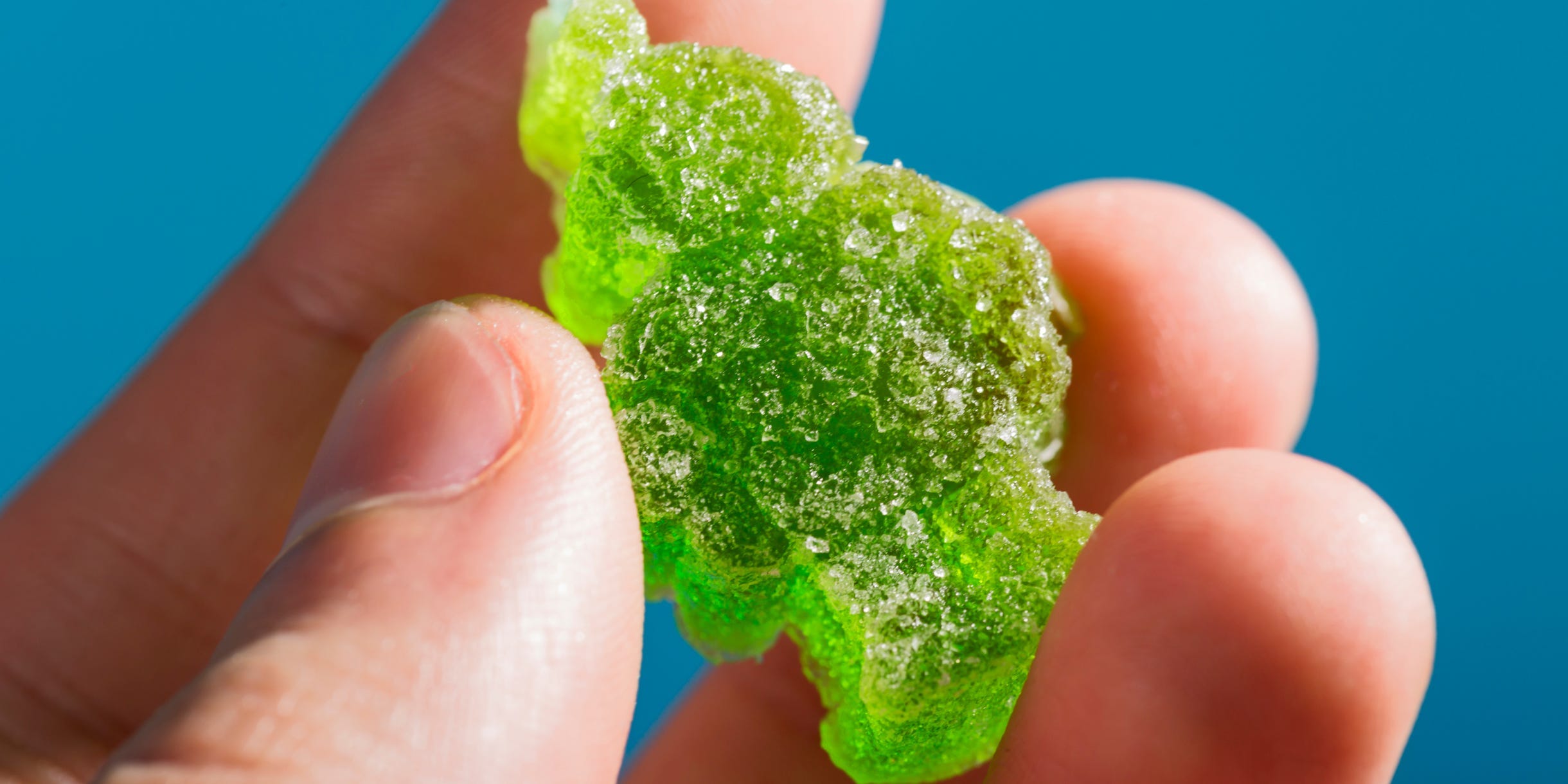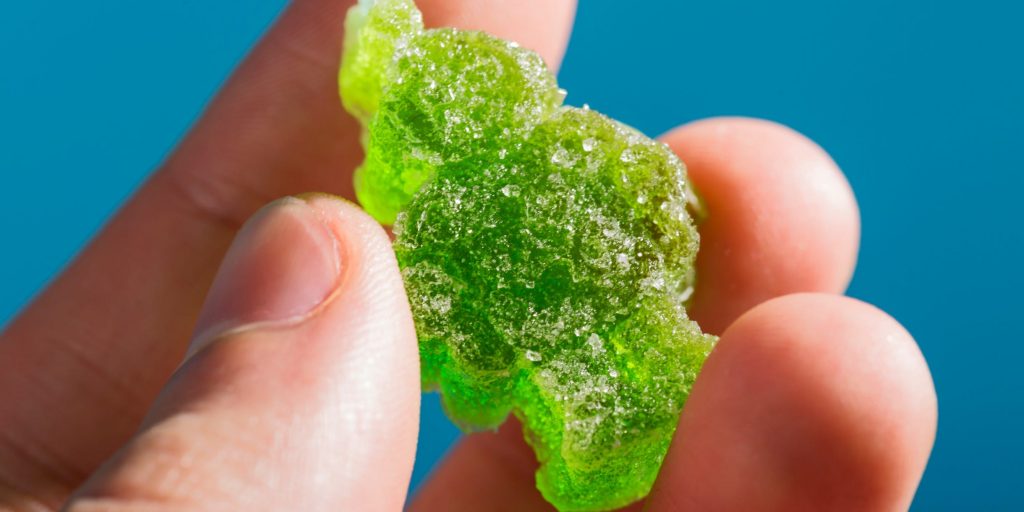
Hollis Johnson/INSIDER
- Edibles take about 30 minutes to work and you could be high for up to 12 hours.
- It's likely that you'll feel the peak effects of the edible about 90 minutes after consuming it.
- But marijuana comes with long-term risks like depression and substance dependence.
- Visit Insider's Health Reference library for more advice.
Edibles are a great alternative to smoking cannabis, whether you want to avoid smoking altogether or if you simply just want to switch things up.
However, eating marijuana is very different from smoking it because the effects may not only feel different but they can last much longer depending on the dose.
Luckily, medical dispensaries offer a wide variety of different doses you can experiment with to determine how much is right for you.
Here's what you need to know about edibles, as well as how long they take to kick in and how long they last.
What are edibles?
Edibles are ingestible forms of cannabis where the cannabis extract has been infused into food or beverages, says Eloise Theisen, RN, MSN, who is part of the Medical Cannabis program faculty at the Pacific College of Health and Science and current president of the American Cannabis Nurses Association. Theisen says some common types of edibles are gummies, chocolates, mints, and tea.
When people talk about edibles, they are most commonly talking about edibles infused with tetrahydrocannabinol (more commonly referred to as THC) which is the compound in cannabis responsible for the psychoactive effects of the plant.
Theisen says most cannabis studies have primarily examined the effects of smoking weed rather than eating it. But in general, some of the science-backed benefits of cannabis include:
- Chronic pain relief: A 2018 study of almost 1000 participants with chronic pain found that cannabis helps relieve pain. The average response amongst the participants was that cannabis was 74.7% effective at treating pain symptoms.
- Symptom relief for cancer patients: In a 2019 study, cancer patients with nausea and vomiting experienced 30% or greater improvement when using cannabis. They also experienced improvements in other symptoms such as anxiety, lack of appetite, and trouble sleeping.
When you're buying edibles, you'll notice there are different dosages available. And if you're not sure where to start, Theisen says it's best to "go low and start slow." So, if you're new to THC, you should start at the lowest dose possible, such as 1 milligram, and then slowly increase based on tolerance and effect.
How long do edibles last?
There's a big difference between how edibles versus smoking affects you. While you might feel high within minutes after smoking cannabis, it takes a while to feel the effect of an edible - up to one to two hours for the average adult, says Theisen.
However, for some people, especially with higher dosages, you may feel an edible hit as soon as 30 minutes after taking it.
If you're new to THC and edibles, wait a full two hours before taking anymore, says Theisen. This will allow you to feel the full effect of the edible before deciding if you want more, or not.
The effects of an edible may last four to six hours, Theisen says, however, some people may feel the effects much longer, for up to 12 hours. She says multiple factors influence the onset and how long an edible will last for you, including:
- Dose
- Gender
- Age
- Metabolism
- Health conditions
- Other medications
The "peak" of feeling the high from the edible will also vary.
"Some people have reported peak effect at 90 minutes and others will feel peak effect at three or more hours. The dose can play a role in the onset and intensity of the peak effect," says Theisen.
Risks of edibles
The risks of edibles are the same risks as consuming cannabis in other ways. Theisen says that side effects are dose-dependent and vary from person to person. According to Theisen, possible side effects of consuming THC are:
- Increased heart rate
- Anxiety
- Paranoia
- Short-term memory loss
- Impairment
- Acute psychosis
Additionally, cannabis may not be right for everyone. "Anyone with a history of severe mental illness should work with a knowledgeable clinician before consuming cannabis to be sure cannabis is appropriate," says Theisen.
As for long term risk, Theisen says that the long-term effects of cannabis remain inconclusive, but some suggest that over time, consistent use of THC can lead to:
- Depression
- Substance dependence
- Cognitive impairments
For example, a 2016 study found that the risk of substance dependence or addiction as well as cognitive impairments is higher if you initially started using cannabis during adolescence.
Overall, whether you're concerned about long-term risks or acute side effects, Theisen says to speak to a healthcare provider who is knowledgeable in cannabinoids and the endocannabinoid system.
Insider's takeaway
Edibles are a good option for someone who doesn't want to inhale smoke but still wants to ingest THC for medical or recreational purposes.
If you're new to edibles, be sure to start with low doses and allow for enough time to determine the effect that the edible is having on you before taking more.
